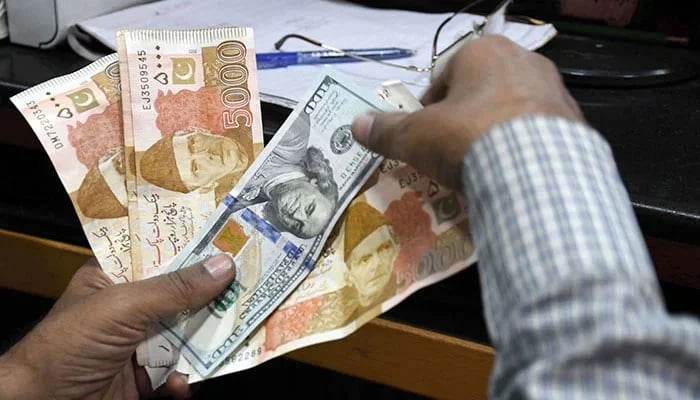KARACHI: Pakistan’s central bank’s recent decision to limit foreign currency transactions to the digital channel is expected to discourage illegal dollar movements as the country prepares for crypto and digital currency adoption.
On Friday, the State Bank of Pakistan revised the regulations for exchange companies, mandating that all foreign currency sold to resident Pakistanis for deposit into foreign currency (FCY) bank accounts must now be conducted strictly through account-to-account transfers, rather than in physical cash.
This change sought to reduce under-the-counter dollarisation, supporting stability in the foreign exchange market and strengthening anti-money laundering (AML) controls. This move comes as the government plans to lift restrictions on cryptocurrency trading, with a draft law already submitted to parliament for review. The SBP is actively engaging with virtual assets under the newly enacted Virtual Assets Ordinance and is working alongside the Pakistan Virtual Assets Regulatory Authority (PVARA). Moreover, it explores a digital money aimed at improving financial inclusion, payment efficiency, and the overall digital economy.
Exchange Companies Association of Pakistan Chairman Malik Bostan stated that the State Bank of Pakistan made this decision because the high dollar rate in cryptocurrency trading prompted many Pakistanis to buy dollars from the open market for bank deposits, only to sell them for profit in the crypto market. He noted that there was a misuse of dollars, as the US currency purchased by individuals was being used for cryptocurrency trading, black market activities, and hawala purposes.
Bostan mentioned that exchange companies had sold approximately $1 billion to Pakistani customers over the past year. He pointed out that while cryptocurrency was trading at higher rates, it had fallen in value last week. He praised the SBP’s move, stating that it would help prevent dollar leakage, strengthen foreign exchange reserves, and further stabilise the rupee. Additionally, he urged the government to take action against several illegal websites operating in the country.
Some exchange dealers disagree with the idea that customers were purchasing foreign currencies for crypto trading. An owner of an exchange firm pointed out that not many Pakistanis have FCY accounts, as opening one is quite difficult. He questioned how it is possible to only purchase $10,000 from the open market to invest in crypto when large amounts of dollars are typically required for trading and investment.
He also mentioned that the process for exchange companies to sell foreign currencies to individuals is already overregulated. Before the recent circular from the SBP, customers were allowed to buy $1,000 in foreign currency in cash, along with a ticket and passport. Purchases over $2,000 had to be conducted through banking channels.
He said over the past three years, the volume of currency exchange transactions—buying and selling—has sharply decreased, prompting people to turn to the grey market to meet their foreign exchange needs. The owner believes that the new circular will favour bank-owned exchange companies, as the SBP has been encouraging banks to establish their own exchange outlets. These new rules are expected to help banks’ exchange companies attract more customers.


